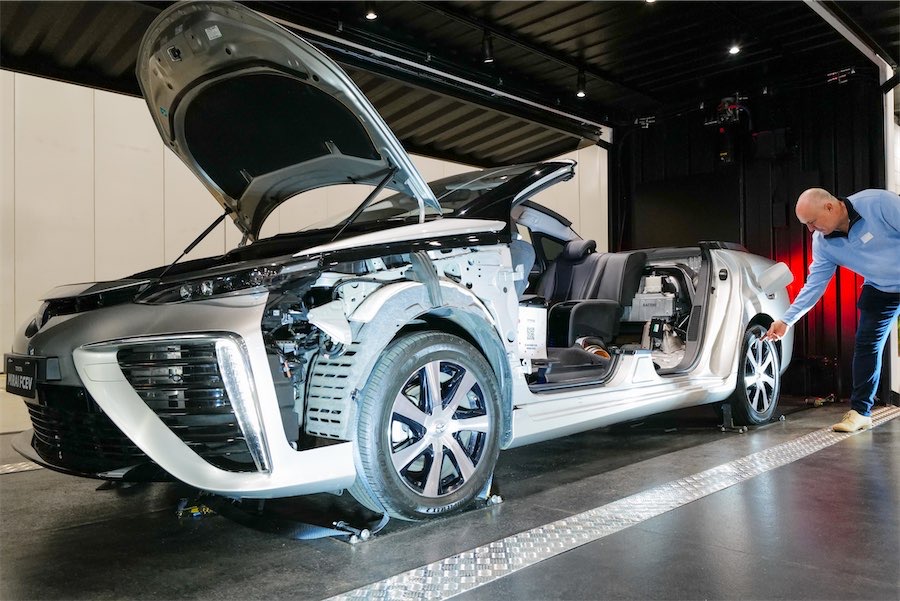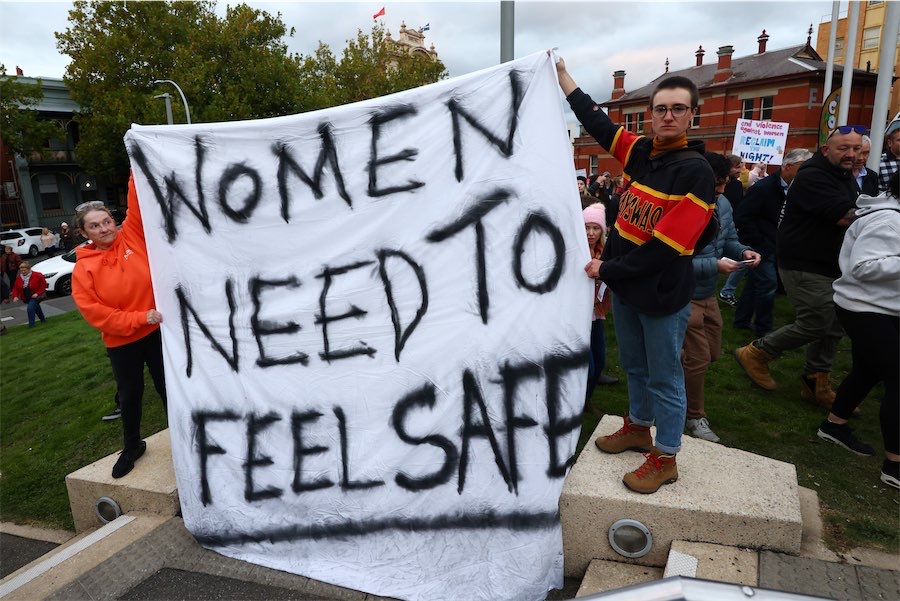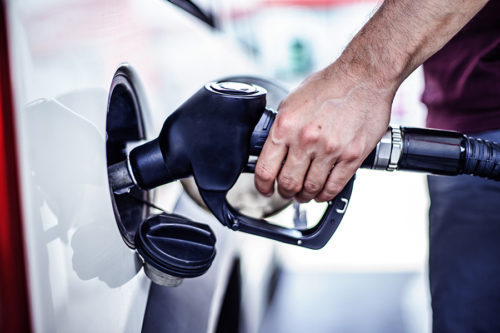
By Jennifer Dudley-Nicholson
The popularity of hydrogen cars halved in Australia last year but their fall was far from dramatic.
Just six hydrogen-powered vehicles were snapped up in 2023, compared to 15 the year before.
The modest tally meant even luxury rides from Maserati and McLaren, priced around $400,000 racked up higher sales.
Energy and transport experts say the falling adoption of hydrogen cars is mirrored by developments overseas, where one major manufacturer cut its prices and an energy giant closed most of its hydrogen refuelling stations.
The ways to use hydrogen in passenger transport is “shrinking,” and advances in electric vehicles, including heavy-duty trucks, could overtake it altogether.
Some companies are seeking to buck the trend, however, and use hydrogen in innovative ways while the battle reaches a conclusion.
New concerns about the use of hydrogen in the transport industry emerged when Toyota cut the price of some Mirai hydrogen fuel-cell cars in the US by up to 60 per cent.
A $US40,000 discount was offered on the sedans, only sold in California, if they were purchased through vehicle leases.
The announcement was compounded when fuel giant Shell closed seven hydrogen refuelling stations in the US state, and revealed it was “exploring options” in relation to its final site.
In a statement, the company cited “supply complications” for the closures and said it remained committed to exploring the use of hydrogen “to decarbonise hard-to-electrify sectors such as heavy industry and heavy-duty transport”.
The changes leave California with fewer than 50 hydrogen refuelling stations.
Scott Dwyer, who serves as research director for the University of Technology Sydney’s Institute for Sustainable Futures, says the news is devastating for hydrogen’s future in transport as California, along with Japan and parts of Germany, are the biggest hotspots for investment in the energy source.
“Things have really changed over the the last five to 10 years,” he said.
“It’s like you’re got this pie where hydrogen made sense and you can see it shrinking.”
Several elements have challenged hydrogen’s use in the transport industry, he says, including difficulties producing the gas from renewable sources, keeping its price low, and rolling out new infrastructure to store and supply it.
Hydrogen vehicle technology has also been challenged by faster advances in electric vehicles, Dr Dwyer says, including a wide range of passenger cars and a growing number of battery-powered buses and heavy-duty trucks.
“There’s a lot of hydrogen demonstrations with buses all over Europe, the US and some in Australia but as you see the prices of electric buses falling and the number of electric buses being sold in China grow, that’s changing,” he said.
“Hydrogen buses will remain as pilots and demonstrations but the real commercial operations will begin with fully electric buses and the same could be said for trucks as well.”
Swinburne University future urban mobility professor Hussein Dia says hydrogen could still be key to unlocking low-emission heavy transport in Australia, particularly over longer distances, but the technology and infrastructure was taking longer to develop than some electric alternatives.
Australia now has 12 hydrogen refuelling stations operating or under construction, according to the CSIRO, but large electric trucks are increasingly being allowed to drive on the nation’s roads.
The Queensland government last week relaxed weight restrictions to allow heavy-duty electric trucks on some roads, making it the fourth state to allow the transport technology after Victoria, NSW and South Australia.
“Hydrogen might have a future in heavy vehicles but the jury is still out,” Prof Dia said.
“You can fill a hydrogen truck fairly quickly but electric truck technology is changing, batteries are getting better, and in China they have battery-swapping for heavy vehicles.”
Volvo has also announced plans to build electric trucks at its Brisbane factory from 2027.
But challenges to the use of hydrogen in transport would not affect its potential in other fields, Prof Dia says, as green hydrogen could prove crucial in reducing carbon emissions from mining and other industries.
“Hydrogen will still have a lot of applications but probably outside transport, like in steel-making,” he said.
“There are some industries where hydrogen will have a role to play in decarbonisation.”
Hydrogen is also being investigated for use in aircraft, through Sydney firm AMSL Aero, and to reduce but not eliminate carbon emission in large vehicles with Wollongong-based DCARB.
The company was this week selected from a pool of more than 2100 applicants to participate in the 100+ Accelerator program and will test its hydrogen transport technology in Singapore.
DCARB chief executive Linton Burns says unlike other hydrogen technology, which could be “10 to 15 years away” from practical use, the company’s D100 unit could be retrofitted to heavy vehicles now to produce hydrogen and reduce vehicles’ use of diesel.
“We see somewhere between a 10 and 15 per cent saving on fuel, depending on the size of the motor,” he said.
“We’ve run 10 trials now and we get savings in that range.”
If successful, Mr Burns says program sponsor Coca-Cola could add the technology to trucks in its supply and logistics fleet, in what would be a coup for the local company.
He says the transport industry could see more hydrogen developments to reduce fuel consumption and carbon pollution over the next decade as the road to low and zero-emission heavy vehicles remains a long one.
“Net-zero is a transition – it’s not binary,” he said.
“You don’t stop using fossil fuels today and start with net-zero tomorrow.”
Who can be trusted?
In a world of spin and confusion, there’s never been a more important time to support independent journalism in Canberra.
If you trust our work online and want to enforce the power of independent voices, I invite you to make a small contribution.
Every dollar of support is invested back into our journalism to help keep citynews.com.au strong and free.
Thank you,
Ian Meikle, editor





Leave a Reply